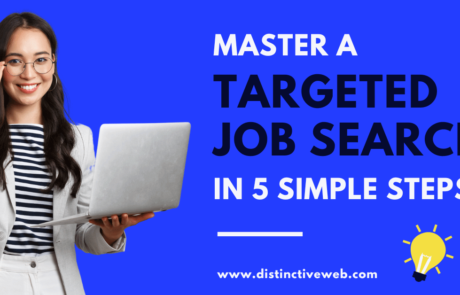
Branding. Long a buzzword used to describe the marketing of products, services, and organizations, “branding” is now applicable to the individual as well, in what has become known as your “personal brand.”
“Your premium brand had better be delivering something special, or it’s not going to get the business”.
~Warren Buffett
Take Control of Your Personal Brand Before an Unintended Personal Brand Controls You
Today, personal branding in the form of clarifying and communicating what makes you and your unique value proposition different and special in the workplace is becoming increasingly essential to achieving professional success.
“Wait”, you say. “Are you saying I need to advertise?” Well, not advertising really. What we mean is that you need to market yourself. Why? Because, like companies that provide products and services, you are a brand. But, unlike most products and services, your brand is absolutely unique.
Let that resonate for a moment. You are a unique brand, unlike any other available in the labor marketplace. Yes, we know that as a job hunter there may be dozens (perhaps even hundreds!) of candidates applying for the same positions you’re seeking, many of whom may have the same or similar education, background, training, and experience. But not one of those candidates is exactly like you.
Everyone has a personal brand. What do people know you for? That is YOUR personal brand. The question is whether you actively take control of your brand, to convey the image that you want to convey. In other words, if you don’t create your own brand, it will be created for you, about you, and not necessarily to your liking.

This manager’s personal brand, which is clearly stated in the subheading of this resume profile, is further reinforced by the inclusion of a personal statement from the candidate, called out with a text box.
Your Personal Brand and Your Job Search
If you are seeking a new job or a change from the one you currently hold, taking the steps necessary to improve your brand and propel your career forward is as important to succeeding in your job search as are the right training and experience, solid references, or innate ability.
Competition requires that companies effectively market their products and services in order to establish a strong brand identity. So too does competition in the job market require you to establish an identity that appeals to prospective employers. Known as personal branding, this strategy serves not only to improve your chances of finding new or better employment, it also helps you to build a reputation which can lead to promotional opportunities, higher standing in the industry, awards, perhaps even academic or professional writing or speaking opportunities.
No matter what stage you’re at in your career—whether you’re a new college graduate looking for your first job, a career changer, an experienced professional, or a top-level executive—personal branding can have a significant positive impact on your job search, often with dramatic results.
Your personal brand will help guide your job search and help you structure and organize your search for maximum results. Really understanding and internalizing your brand, along with being able to clearly articulate your ideal job, will help you make decisions about which ads to answer, which companies to target, and with whom to network.
An effective personal brand piques interest and impels people to want to learn more about you—and, more important, to hire, promote, and endorse you to others. This is why you must communicate your brand in all of your efforts to promote yourself in the job market. Your personal brand needs to be consistently communicated in your resume, your LinkedIn profile, job search letters, your executive biography if you use one, and all other career documents.

This excerpt of a LinkedIn profile written for one of our clients at Distinctive Career Services illustrates an example of a well-branded LinkedIn profile.
Enhance Your Online Image with Personal Branding
In these modern times, many professional networking activities and job searches are conducted online. In fact, in a world where interpersonal communication is often dominated by social media, your personal brand ultimately defines who you are online, not only to people you know, but also to everyone outside of your immediate social circle.
For those of us old enough to remember the old days of job searching using classified ads, we know that the internet has revolutionized the way that people go about looking for a job. With most job searching online now, it is possible to network with key influencers in your field or industry in a way never before possible, and to search for jobs the world over, researching not only companies but entire industries in hopes of finding the ideal situation.
However, to borrow from an old saying, ‘what the internet giveth, the internet can taketh away.’ While the internet may make it much easier for you to conduct research about potential jobs and employers, it enables potential employers to research you. Will Google or other search engines reveal any embarrassing or personal information about you that might persuade a potential employer not to hire you?
 Time For An Audit!
Time For An Audit!
You’re not sure, are you? Before you submit your next job application, then, we suggest you conduct your own “Online Image Audit” and clean up any dirt you may find there. How? Here’s how:
1. Clean up after yourself.
- Examine your online presence on whatever social networking sites (SNS) you use. Are the privacy settings you’re using really keeping your Facebook, Twitter, LinkedIn, and Pinterest accounts private or is it easy for someone to find you? Depending on how you use each SNS, you may want to keep certain ones private. Others you may want to be public. Adjust your privacy settings accordingly.
- You gotta keep ’em separated! If it is at all possible, it is a very good idea tio keep your personal and business emails and social networking sites separate. This can not be stressed enough. An inappropriate YouTube video or status update on Facebook easily accessible to recruiters or prospective employers can spell doom not only to a current job search but to your professional integrity as well. Remember, once on the internet, content lives forever.
- Take a hard look as to whether the image you are conveying online is the image you want your professional contacts to see. The world’s most professional LinkedIn page does you no good if your Facebook page has posts, photographic or otherwise, that call your judgment into question.
- Remember, the person hiring you likely does not share the same perspective you do about what is considered personal and what is considered business. A friend isn’t hiring you, a stranger is. Assume it’s a stranger with a very conservative worldview.
2. Nobody’s perfect.
- Accept the fact that your online image is not completely within your control. If you find a Twitter feed or Facebook post that doesn’t flatter you, take a deep breath and know that it happens to many of us. Just take steps as quickly as possible, to rectify it.
- No matter how closely you guard your privacy, keep in mind that nothing you share on the internet is truly private and once it goes online, it remains there. Many times permanently. While you may trust those you share info with, you have no control over what they do with that information once they receive it. This should always be at the forefront of your mind.
- Audit your “friends.” No, really. How well do you know those Facebook friends? It’s risky to share personal information with people you don’t really know. Use the “unfriend” function judiciously. Trust us, you’ll feel better.
3. Don’t be a tool-use them instead.
- There are many tools available that allow you to monitor cyberspace for UFOs (unflattering or false opinions). Google Alerts is one of the most popular and will enable you to track online conversations about the keywords you choose (like your name) for rapid response.
- Regularly search Google and other search engines using your name as search terms. What do you find? Know that this is what recruiters are seeing too.
4. Brand yourself.
- As mentioned above, your current online persona dictates the results people find when searching your name. Send those search results further down the page by creating your own online content that is consistent with the personal brand you want to convey. Blog about what interests you. Update your LinkedIn page. Comment on industry or company websites. Write. Write often and do so with an eye not only to burying the bad info but by enhancing your reputation as a go-to person for info. Do these things and search results will find what you actively create, rather than what has already been passively produced.
- SEO is what drives your web-based content to the front of the line (first page) of search engines. If your LinkedIn profile doesn’t include the words or phrases applicable to your industry, your online profile won’t be discovered during an online search. Internet marketing (branding) is driven by content. SEO ensures your content tells your story in a language employers can find and understand.
- Compare and contrast. Review the LinkedIn accounts of your contacts and those in the industry who hold the jobs you aspire to. Use what you find to refine your brand. Never, never, ever copy another account. To do so would be plagiarism. But you can learn a lot by reviewing the image they are portraying and the keywords they are using in their profile. Also, review the posts and tweets of those you respect. Learn what works and what doesn’t. Especially what doesn’t!
- Before your LinkedIn profile “goes live,” have it reviewed by someone whom you trust and who is familiar with the industry in which you seek to make a career. Much as retailers wouldn’t dream of running an ad campaign without professional input, you shouldn’t create an online personal brand without subjecting it to objective and professional scrutiny. Even better, hire professional writers to help you created a branded LinkedIn profile. This is a service we perform at Distinctive Career Services for most of our clients. Book a free informational consultation with us to learn more about how we can help you.
The Bottom Line
Focus on taking full control of your personal brand. Nature abhors a vacuum and so does a Google search. If you don’t work to develop and maintain your brand, others will do so for you. This puts you at their mercy. While it’s unlikely that someone would intentionally cause information which might be perceived as negative to make it’s way to social media, passive personal branding permits exactly that possibility. Even if unintentionally produced, bad information about you is just that: Bad.
Engaging in effective personal branding increases your ability to disseminate the information you want others to know about you, both personally and professionally. And, as your “consumers” include prospective employers and industry professionals, you can’t afford an unsuccessful personal branding campaign.









